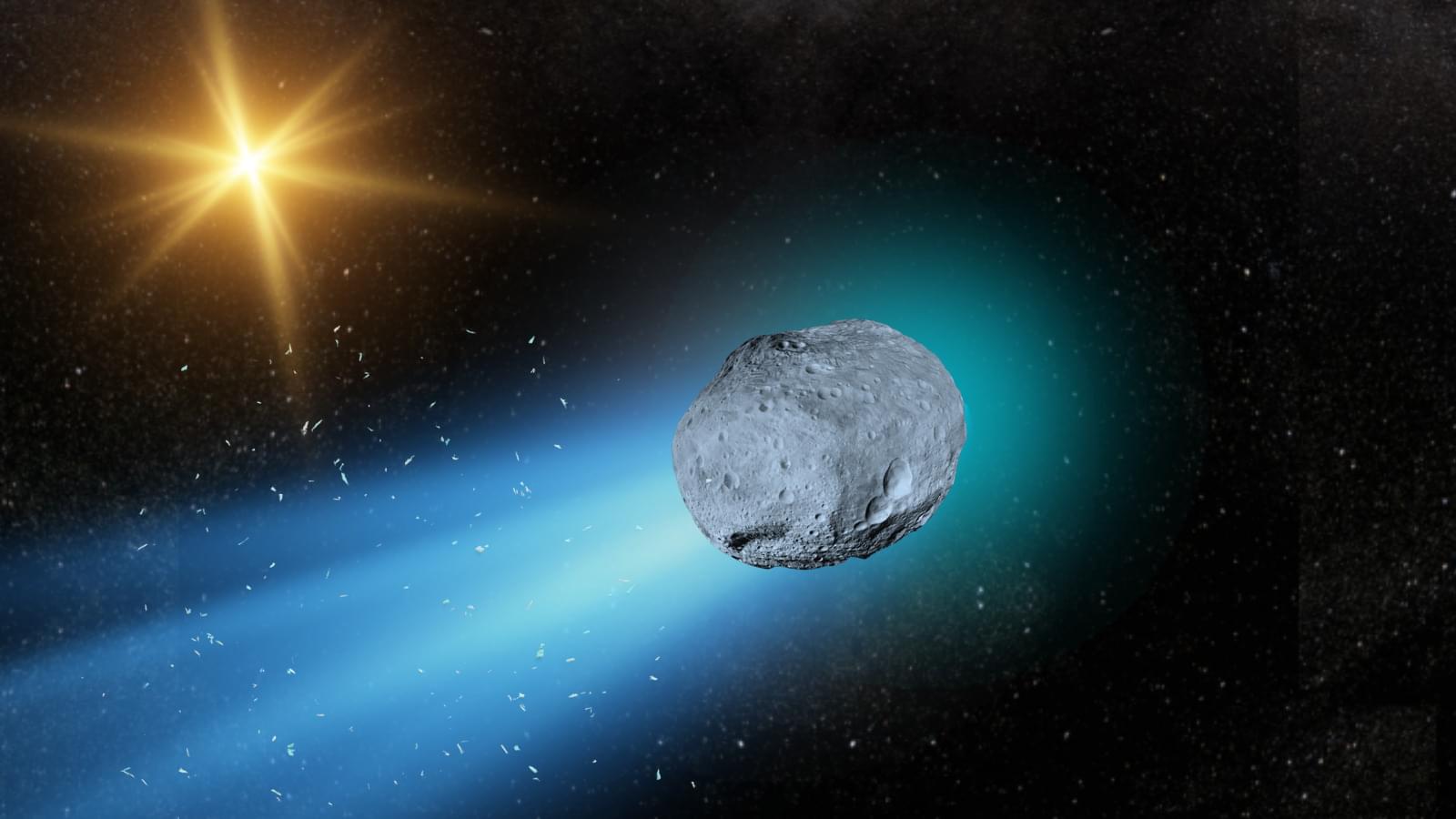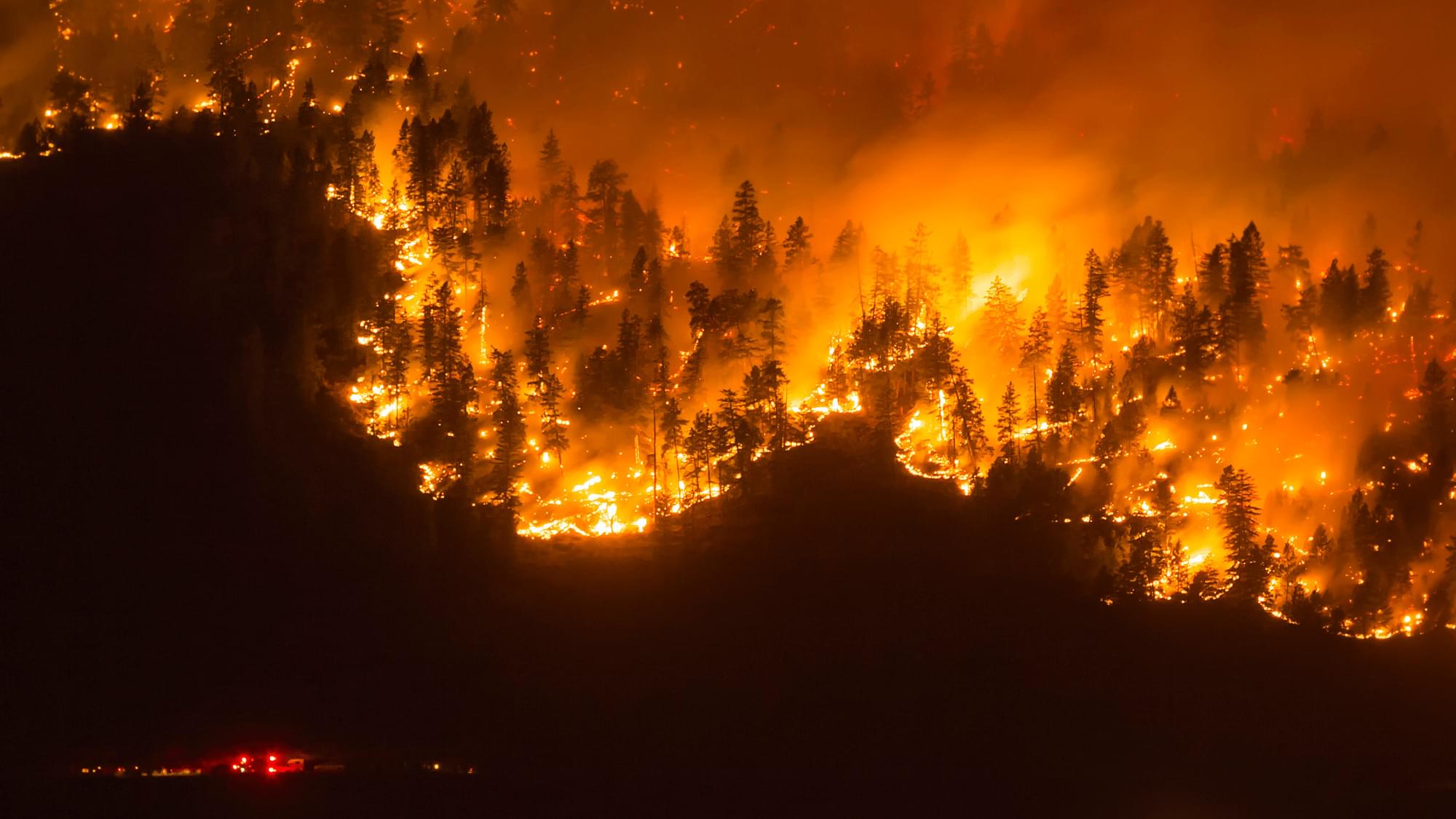Could cosmic silence be a survival strategy?
Category: existential risks – Page 8
Tesla FSD Competitors Admit DEFEAT: “Elon Was Right”
Questions to inspire discussion.
Safety and Performance.
🛡️ Q: How does Tesla’s full self-driving system compare to human driving in terms of safety? A: According to Elon Musk, Tesla’s end-to-end neural networks trained on massive video datasets have been proven to be dramatically safer than average human driving.
⚡ Q: What recent hardware upgrade has improved Tesla’s full self-driving capabilities? A: Tesla’s AI4 hardware has been upgraded to 150–200 watts, enabling more complex neural networks and faster decision-making, achieving 36 frames per second processing.
Scalability and Efficiency.
📈 Q: Why is Tesla’s vision-only approach considered more scalable than competitors’ methods? A: Tesla’s vision-only approach is more scalable than competitors’ use of multiple sensors, sensor fusion, and high-definition maps, as stated by BU’s Robin Lee.

3I/ATLAS: Interstellar object ‘may be oldest comet ever seen’
A mystery interstellar object discovered last week is likely to be the oldest comet ever seen—possibly predating our solar system by more than 3 billion years, researchers say.
The “water ice-rich” visitor, named 3I/ATLAS, is only the third known object from beyond our solar system ever spotted in our cosmic neighborhood and the first to reach us from a completely different region of our Milky Way galaxy.
It could be more than 7 billion years old, according to University of Oxford astronomer Matthew Hopkins—who is discussing his findings at the Royal Astronomical Society’s National Astronomy Meeting (NAM 2025) in Durham—and may be the most remarkable interstellar visitor yet.

Astronomers say new interstellar visitor 3I/ATLAS is ‘very likely to be the oldest comet we have ever seen’
The thick disk is a band of our galaxy’s most ancient stars that sandwiches the thin disk, which formed more recently and contains our relatively young star, the sun, and the solar system.
“This is an object from a part of the galaxy we’ve never seen up close before,” University of Oxford astrophysicist Chris Lintott said. “We think there’s a two-thirds chance this comet is older than the solar system, and that it’s been drifting through interstellar space ever since.”
If 3I/ATLAS originates from the Milky Way’s thick stellar disk, and thus formed around an ancient star, this also has implications for its chemical composition. Hopkins and crew suggest the interstellar interloper may be rich in water ice.

Will AI need a body to come close to human-like intelligence?
The first robot I remember is Rosie from The Jetsons, soon followed by the urbane C-3PO and his faithful sidekick R2-D2 in The Empire Strikes Back. But my first disembodied AI was Joshua, the computer in WarGames who tried to start a nuclear war – until it learned about mutually assured destruction and chose to play chess instead.
At age seven, this changed me. Could a machine understand ethics? Emotion? Humanity? Did artificial intelligence need a body? These fascinations deepened as the complexity of non-human intelligence did with characters like the android Bishop in Aliens, Data in Star Trek: TNG, and more recently with Samantha in Her, or Ava in Ex Machina.
But these aren’t just speculative questions anymore. Roboticists today are wrestling with the question of whether artificial intelligence needs a body? And if so, what kind?
From Mammoth Revival to Human Fertility with Dr. Eriona Hysolli | Singularity University
Join us for an exclusive 1-hour conversation with Dr. Eriona Hysolli, the visionary scientist bridging de-extinction technology and the future of human reproduction. Recognized by Time100 Next for her groundbreaking work reviving the woolly mammoth, Dr. Hysolli brings a unique perspective to reproductive biotechnology that you won’t find anywhere else.
In this informal Q&A session, we’ll explore how cutting-edge technologies originally developed for species conservation are now revolutionizing human fertility treatments. Dr. Hysolli will share insights on:
The latest breakthroughs in synthetic embryos and artificial wombs.
How in vitro gametogenesis could transform infertility treatment.
Lessons from mammoth de-extinction that apply to human reproductive health.
The intersection of genome engineering and fertility solutions.
Near-term commercial applications in reproductive biotechnology.
Drawing from her pioneering work at Yale, George Church’s lab at Harvard, and as Head of Biological Sciences at Colossal Biosciences, Dr. Hysolli offers a rare glimpse into technologies that could redefine human reproduction within the next decade.
The session will feature a moderated discussion followed by audience Q&A. Whether you’re an investor, entrepreneur, healthcare professional, or simply fascinated by the future of fertility, this conversation will provide essential insights into one of biotechnology’s most promising frontiers.
Subscribe: http://bit.ly/1Wq6gwm.
Connect with Singularity University:

Groundbreaking project to make artificial human DNA begins
In a groundbreaking development, scientists have started working on the building blocks of human life from scratch.
The project, dubbed the Synthetic Human Genome Project, is being funded by London-based Wellcome Trust, the World’s largest medical charity, with an initial investment of £10 million (approximately $12.7 million).
The research has been largely considered taboo due to fears that it could lead to designer babies or unintended consequences for future generations.
(That’s not my taboo. Creating Synthetic DNA can lead to the creation of synthetic humans. It can be useful in stopping wildlife extinction, but we don’t know the implications of what happens when we do. TheThe BBC also reported on this. Link in comments)
Work has started on a groundbreaking, yet contentious, project to create artificial human DNA from scratch, marking a potential world first.

Star Trek’s Biggest Plot Hole: UFOs and the Prime Directive
In the grand cosmology of Star Trek, the Prime Directive stands as both a legal doctrine and a quasi-religious tenet, the sacred cow of Federation ethics. It is the non-interference policy that governs Starfleet’s engagement with pre-warp civilizations, the bright line between enlightenment and colonial impulse. And yet, if one tilts their head and squints just a little, a glaring inconsistency emerges: UFOs. Our own real-world history teems with sightings, leaked military footage, close encounters of the caffeinated late-night internet variety — yet in the Star Trek universe, these are, at best, unacknowledged background noise. This omission, this gaping lacuna in Trek’s otherwise meticulous world-building, raises a disturbing implication: If the Prime Directive were real, then the galaxy is full of alien civilizations thumbing their ridged noses at it.
To be fair, Star Trek often operates under what scholars of narrative theory might call “selective realism.” It chooses which elements of contemporary history to incorporate and which to quietly ignore, much like the way a Klingon would selectively recount a battle story, omitting any unfortunate pratfalls. When the series does engage with Earth’s past, it prefers a grand mythos — World War III, the Eugenics Wars, Zephram Cochrane’s Phoenix breaking the warp barrier — rather than grappling with the more untidy fringes of historical record. And yet, our own era’s escalating catalog of unidentified aerial phenomena (UAPs, as the rebranding now insists) would seem to demand at least a passing acknowledgment. After all, a civilization governed by the Prime Directive would have had to enforce a strict policy of never being seen, yet our skies have been, apparently, a traffic jam of unidentified blips, metallic tic-tacs, and unexplained glowing orbs.
This contradiction has been largely unspoken in official Trek canon. The closest the franchise has come to addressing the issue is in Star Trek: First Contact (1996), where we see a Vulcan survey ship observing post-war Earth, waiting for Cochrane’s historic flight to justify first contact. But let’s consider the narrative implication here: If Vulcans were watching in 2063, were they also watching in 1963? If Cochrane’s flight was the green light for formal engagement, were the preceding decades a period of silent surveillance, with Romulan warbirds peeking through the ozone layer like celestial Peeping Toms?
